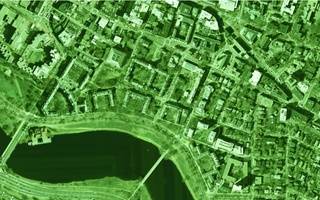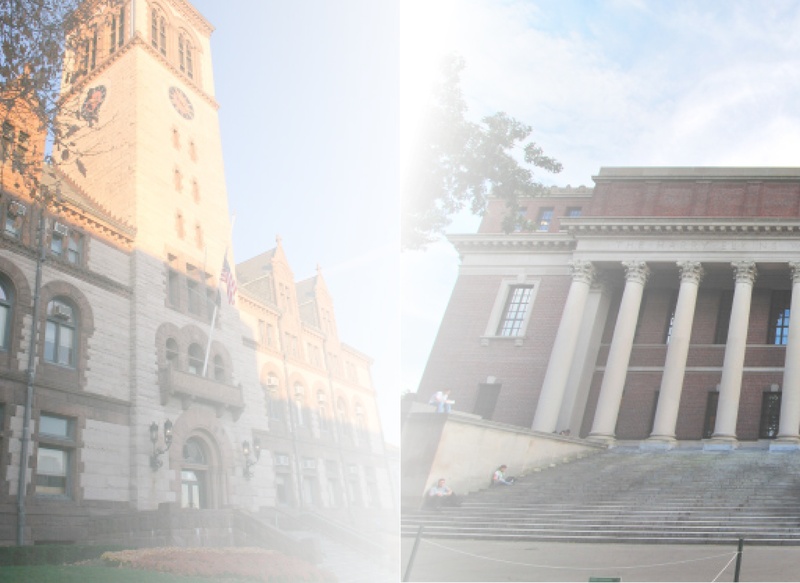Part I of a five-part series on Cambridge City Council election issues. Read each installment on the Fridays leading up to the Nov. 5 election. Part II ran on Oct. 11 and Part III ran on Oct. 18.
When Cambridge City Council candidate Mushtaque Mirza was traveling in New Zealand, people were puzzled when he said his hometown—Cambridge, Mass. The confusion quickly cleared when he told them that Cambridge was also the home of Harvard University.
“I said ‘Have you heard about Harvard?’ and they said ‘Yes, yes, yes’,” Mirza told The Crimson. “Everybody knows Harvard.”
Mirza is now vying with 24 other candidates for the opportunity to serve Cambridge as one of its nine city councillors—a contest that will be decided on Nov. 5.
Each of the candidates is looking to negotiate town and gown relations in a city that is said to be best-known for its universities. From questions such as ‘Where does Cambridge stop and Harvard start?’ and ‘How have relationships between the city and universities developed over the years?’ to ‘Where do students fit into the mix?’, the relationship between Cambridge and Harvard is a pivotal element of candidate philosophy.
“There wouldn’t really be a Cambridge if Harvard hadn’t founded their college here...Our histories are intertwined and that one would not be successful without the other,” said current City Councillor and candidate Leland Cheung.
Harvard was founded in 1636—the same year Cambridge became an official city. Over nearly four centuries, the city has become a liberal enclave that houses several universities, a broad and prosperous tax base, and a growing population.
As was inevitable, a relationship has developed between Harvard and Cambridge, but that partnership has been rife with tensions over matters ranging from construction to taxpaying to the thousands of undergraduates and workers on the Harvard campus.
“Like it or not, people can live here 100 years, but no one will have been here longer than Harvard. Like it or not, Cambridge is defined by its universities. To not embrace that is to the detriment to both Harvard and the town...Cambridge is because of Harvard,” said Logan E. Leslie ’16, who is running for a seat on the Council.
With five weeks left until election day, each of the candidates is presenting a solution for navigating the town and gown divide, and many of these visions involve using students as the bridge between city and university.
THE ANTI-HARVARD CAMPAIGN
Of all the institutions of higher learning in the city, MIT—not Harvard—has dominated Council discussions in the past two years, according to councillors and candidates.
As Harvard has worked to finalize the development plan in Allston, the focus of the University’s community outreach efforts have shifted accordingly from Cambridge to Allston, across the river. MIT’s dealings with the Cambridge community, meanwhile, have increased, with leaders including MIT President L. Rafael Reif coming before the Council in the past year to negotiate necessary zoning changes for development in Kendall Square.
But Harvard still remains a contested character in the Cambridge political scene, according to several City Council candidates.
“It is good politics to say whatever you want to say if it’s against Harvard,” said Leslie, who added that he is running to advocate for the University. “There are a lot of people—most of them uninformed—who will go to the polls and vote a vote if they think it’s anti-Harvard.”
Read more in News
At Town Hall Meeting, Professors Discuss Future edX ImprovementsRecommended Articles
-
BRIEF: City of Cambridge Divided Into Two Voting DistrictsLast week, Massachusetts Governor Deval L. Patrick ’78, a Democrat signed a state-wide redistricting bill that will divide the city of Cambridge into two voting districts.
-
 Piece of Mind? Piece of Cake
Piece of Mind? Piece of Cake -
As Healy Departs, Cambridge City Council Looks to Find ReplacementWith longtime City Manager Robert W. Healy’s contract due to expire in June 2013, the Cambridge City Council has begun the search for his replacement.
-
City Council Taps Rossi To Be City ManagerIn a move that upset some Cantabrigians and drew praise from others, the Cambridge City Council tapped Deputy City Manager Richard C. Rossi to replace longtime City Manager Robert W. Healy.
-
City Council Passes Resolution Backing HUCTWThe Cambridge City Council passed a resolution last Monday night declaring its support for the Harvard Union of Technical and Clerical Workers as the union continues its ongoing negotiations with the University.
-
 Imagining and Implementing a Greener Cambridge
Imagining and Implementing a Greener Cambridge














